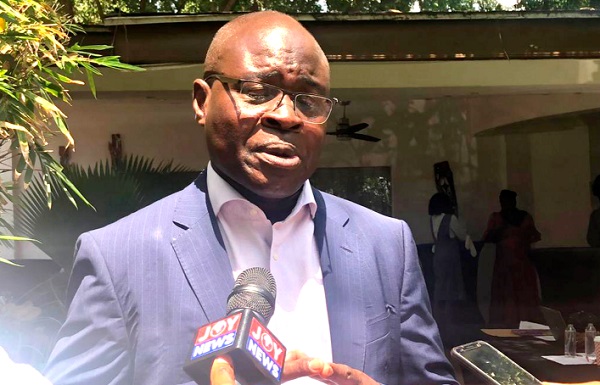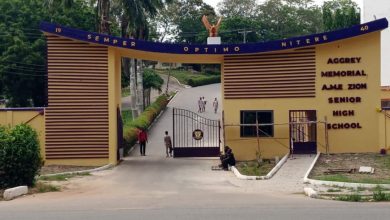Enforce building code to minimise earthquake impact — Prof. Dodoo

The Director-General of the Ghana Standards Authority (GSA), Professor Alex Dodoo, has called for the strict enforcement of Ghana’s building code and regulations to build resilience against earthquakes.
He also underscored the need for the mandated state agencies to carry out structural integrity tests on buildings in line with the building code.
He said the devastating earthquake in Turkey was a warning signal to Ghana to “do things right” to avert any future disaster.
“Every crisis is an opportunity, and the Turkish earthquake showed us that we need to brace up and build resilience. Earthquakes do not really kill, it is poorly constructed buildings which are not in line with national standards that kill,” he stressed.
LMIS initiative
Prof. Dodoo made the call at a workshop in Accra by the Design Technology Institute (DTI) last Tuesday to discuss a project on the country’s Labour Market Information System (LMIS).
The project was carried out by some Master of Public Administration students of the School of International and Public Affairs (SIPA), Columbia University, in collaboration with the DTI.
The project, which started in 2022, looked at the efficacy of LMIS and alternative models that could be designed and implemented to anticipate skills requirements in Ghana.
The DTI-SIPA event brought together government agencies such as the Employment and Labour Relations Ministry, the National Development Planning Commission (NDPC) and the Ghana Standards Authority (GSA) to look at the LMIS and what the private sector could do to support the government.
Action
Prof. Dodoo observed that enforcing the building code would create up to half a million jobs along the value chain and help to address the unemployment challenge in the country.
“People need excellent buildings, and given the fact that some parts of Ghana are earthquake zones, the buildings must be built to be resilient. If Ghanaians follow the law and build according to the building code, we can have even up to half a million jobs there,” he said.
He also urged training institutions to look at the opportunities in the built sector and start training people in the skills required to take up jobs in that space.
Collaboration
The Deputy Minister of Employment and Labour Relations, Bright Wireko Brobbey, underscored the need for stronger collaboration between the public and private sectors to build a robust LMIS for the country.
Mr Brobbey said apart from helping to get reliable data on the job market, such collaborations would also be key in changing the narrative that white collar jobs were the only sustainable jobs.
He said stronger public-private partnership would help to unlock the potential of the informal sector, which constituted about 80 per cent of employment in Ghana.
Prioritise TVET
The Founder and Chief Executive Officer (CEO) of DTI, Constance Swaniker, said it was important to prioritise technical and vocational education and training (TVET) to create the human resource with the critical skills needed for national development.
“We need to take the bull by the horn by putting more emphasis on TVET because that is what the country needs now to develop. We need to bridge the human resource gap by identifying the disconnection between our skills training models and industry,” she said.
Ms Swaniker observed that African governments needed to adopt human resource development policies that leveraged TVET and skills training.
“The future of the world is Africa, and if we get our human capital development policies right, Africa will be the strongest force for the global market,” she said.
The Director-General of the NDPC, Dr Kodjo Mensah-Abrampa, said in an era of globalisation, it was important to prioritise standardisation, precision and strict adherence to regulations.
He said while strategies were being put in place to produce technical human resource in the country, it was even more important for training regimes to be linked to standards and regulatory systems.
“We must strive to move away from the business-as-usual way of doing things because the future of work lies in standards, precision and quality of work,” he said.
Source: Graphic Newsroom










